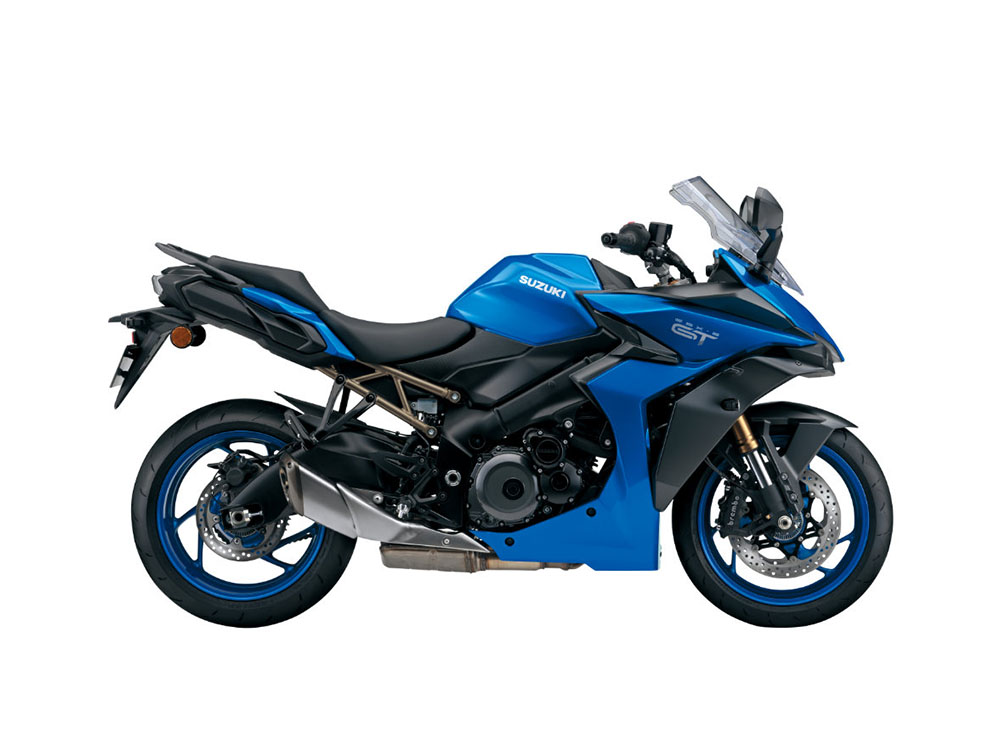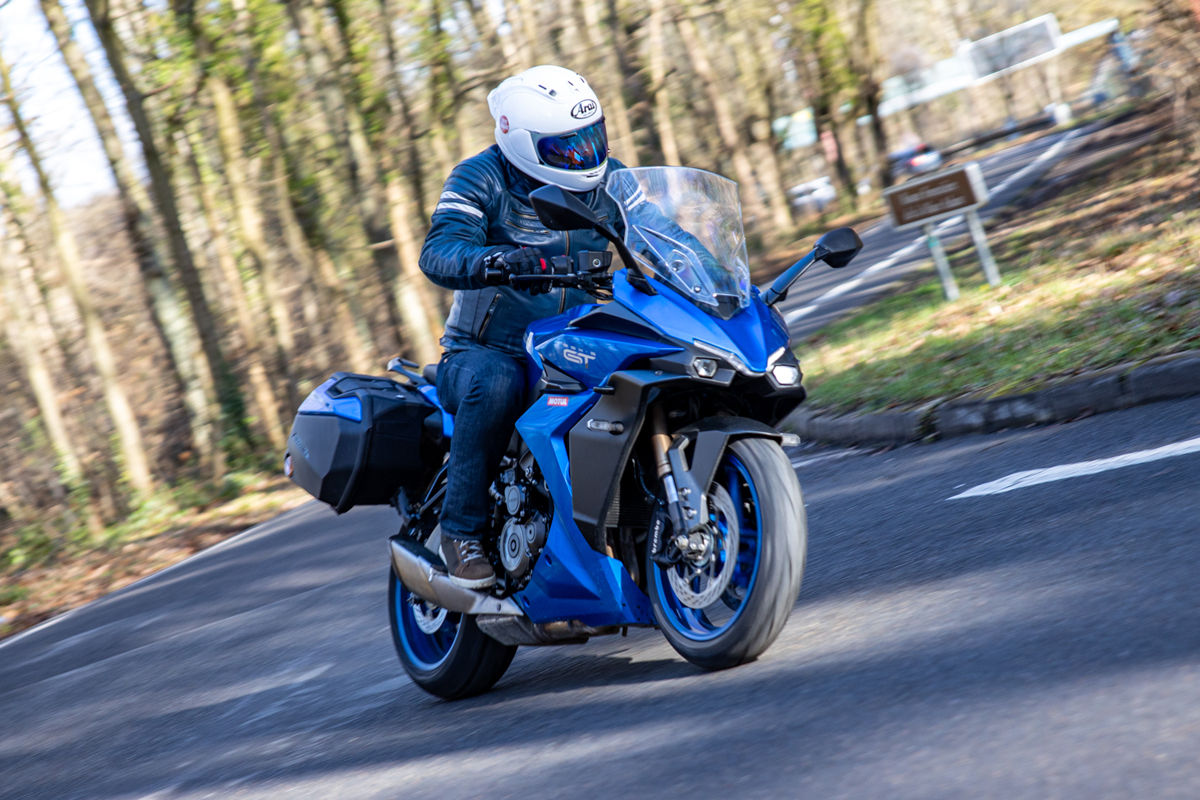
Looking for a fast, comfortable and efficient motorcycle? Then the brand new Suzuki GSX-S1000GT is for you, ready to revive the good (or not so good) old days where Cape Town was just ten hours away from Johannesburg.
Built in the Hamamatsu factory in Japan, the GSX-S1000GT is a touring version of the GSX-S1000 (recently reviewed by my excellent colleague Harry Fisher). The differences are mainly around the fairing, with its edgy design, twin Yamaha R1-like lenticular LED lights, full windscreen (unfortunately not adjustable) and metallic mirror mounts.
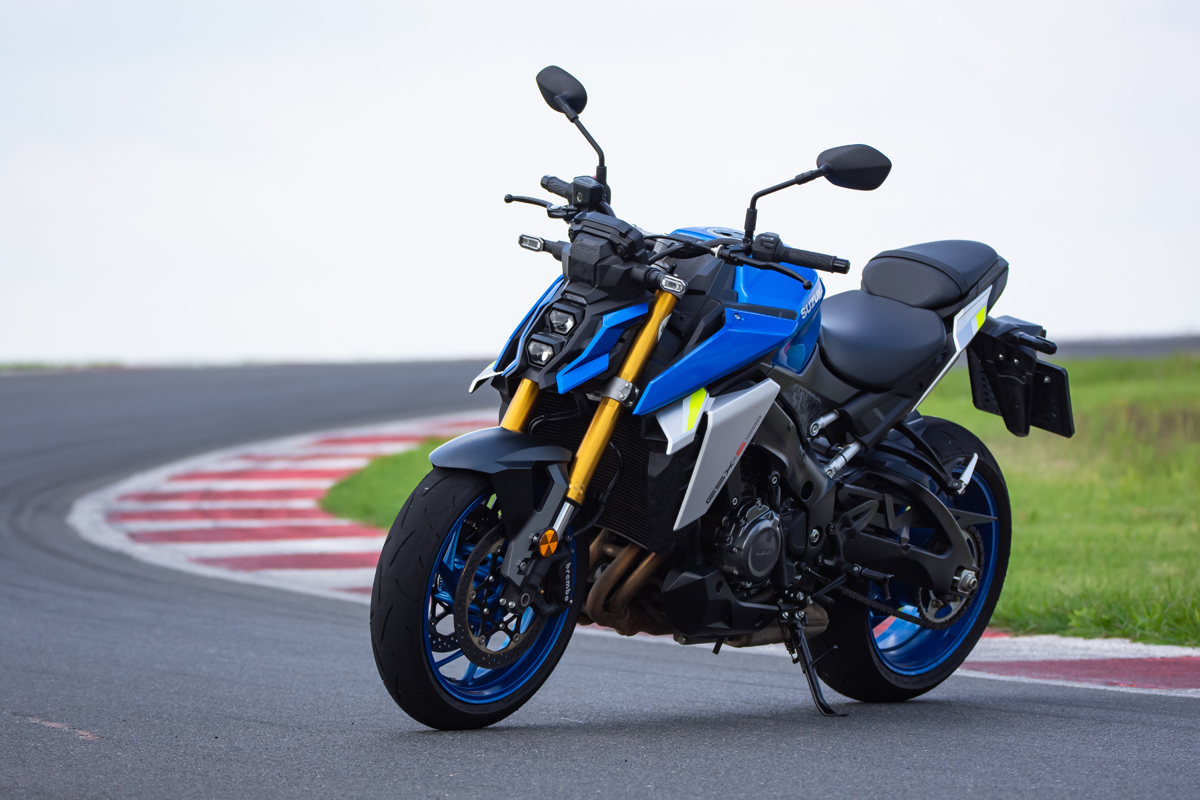
As on the naked version, the fuel tank holds 19 litres of precious—and expensive—liquid. Behind the tank is a new, thicker and more welcoming seat, finished with grab handles to help the pillion sit comfortably. The whole pillion area has actually been redesigned from the naked version.
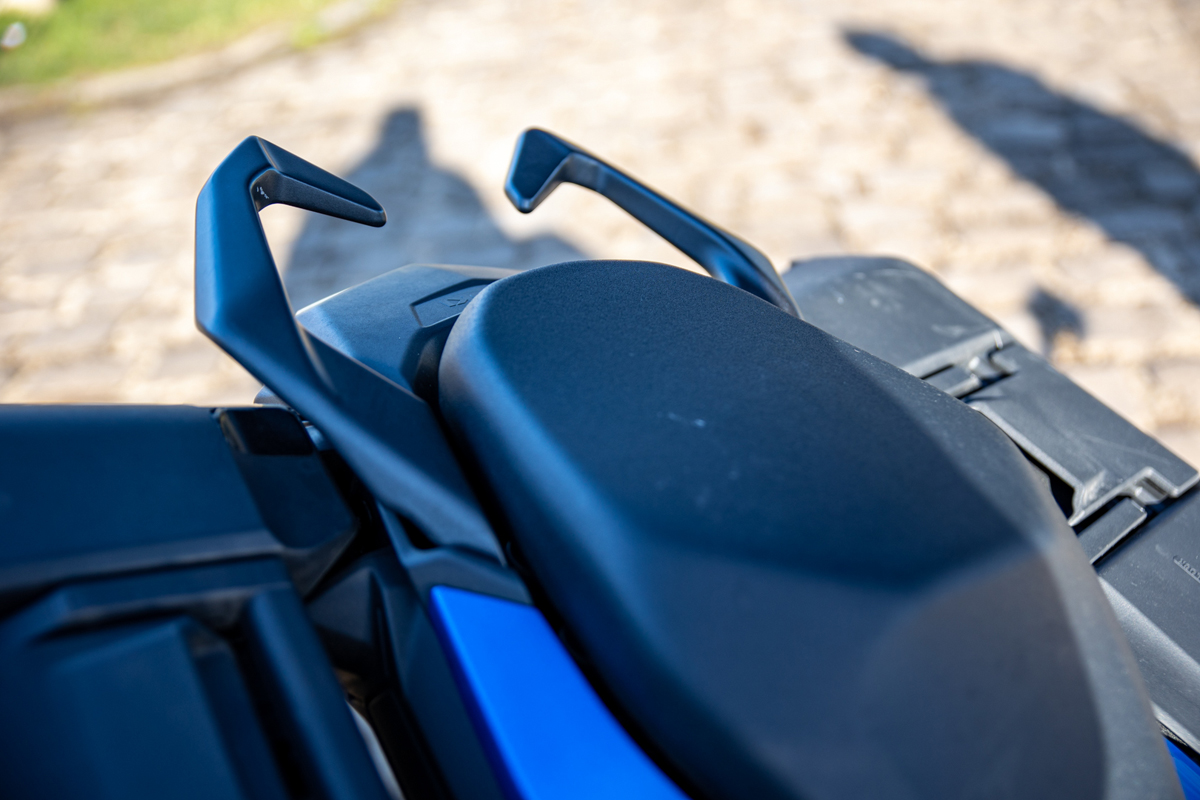
GSX-R inside
The GT version has the same specs as the naked version—which means that there is more than just a little GSX-R DNA in it. The aluminium frame holds a slightly detuned 2005-spec GSX-R1000. To get its Euro 5 certification, the GSX-R engine had to evolve; a lower cam profile, smaller intake diameter, new airbox, new 10-point injectors and new iridium spark plugs.
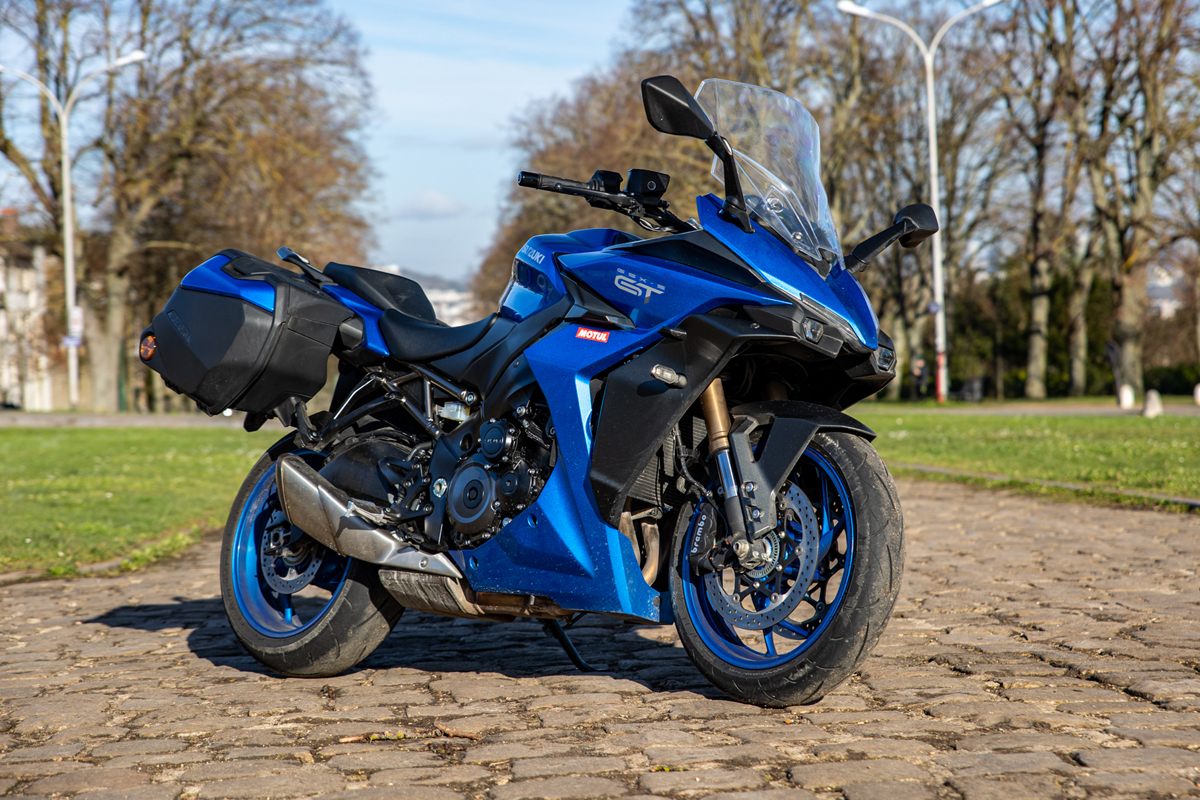
The inline-four cylinder now delivers 152 hp, which is 2 hp more than the Euro 4 version, but at 1,000 rpm higher (at 11,000 rpm). There’s also 106 Nm of torque on tap, which is 2 Nm less than before—but the good news is it’s delivered at 250 rpm lower than before (at 9,250 rpm).
Of course, with that much power, some electronic aids are needed. Remember: power is nothing without control (said Pirelli). The GSX-S1000GT is equipped with SIRS (Suzuki Intelligent Ride System), but unfortunately, it’s old-school tech, with no inertia measurement unit to handle it. The SIRS is basically just a combination of traction control (5 levels and ‘off,’ with a 4-millisecond check), three engine maps, and an up-and-down quick-shifter.
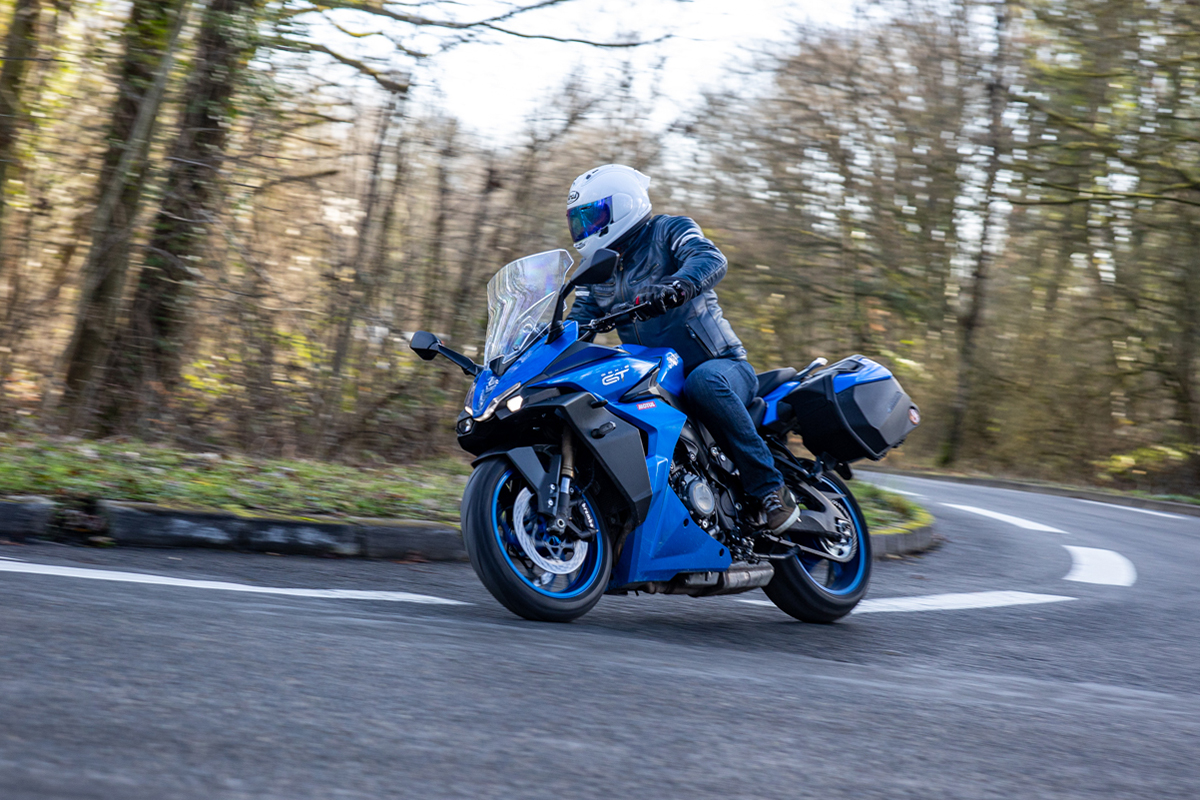
Of course, there are also the Suzuki Low RPM Assist and Easy Start functions, as seen on the brand since the 2016 SV650. But unfortunately, the lack of any IMU means there’s no cornering ABS, nor anti-lift, -wheelie, -slide or -whatever assistance. The GSX-S1000GT is a bit on the old school side… but we still like it.
The GT version does have some bonuses—like cruise control. The fit and finish is quite good for a Suzuki too, especially since the instrument panel is now a 6.5”, full-colour TFT unit, with clear and easy to read information. The left-hand switchgear is also new, and helps to navigate through the different menus and settings.
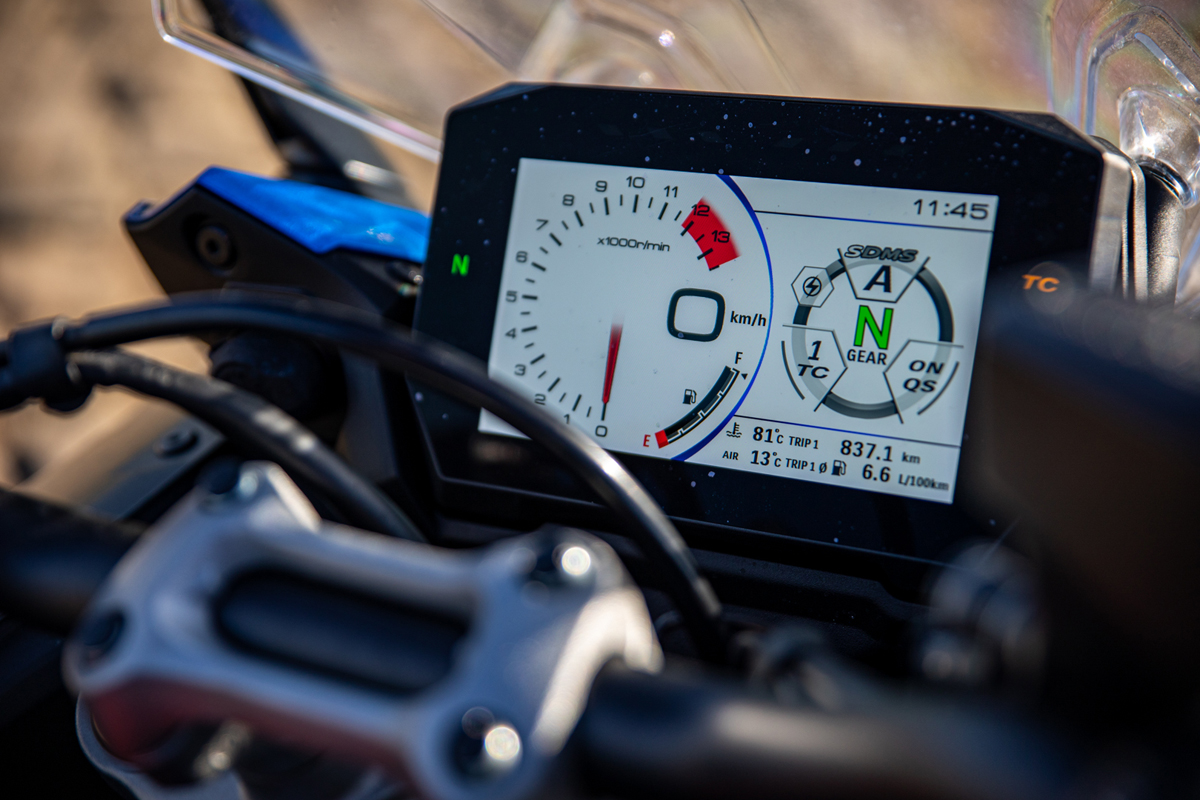
There’s a USB socket on the left side of the dashboard too, which is quite useful for real mile-eaters. You can also run navigation on the TFT display via a smartphone app—but it wasn’t that easy to connect the phone up during our test.
The chassis geometry is exactly the same as its naked counterpart. And it has the same Dunlop Sportmax Roadsport 2 tyres, that were quite good and forgiving during our test during the French winter, with cold temperatures and wet roads.
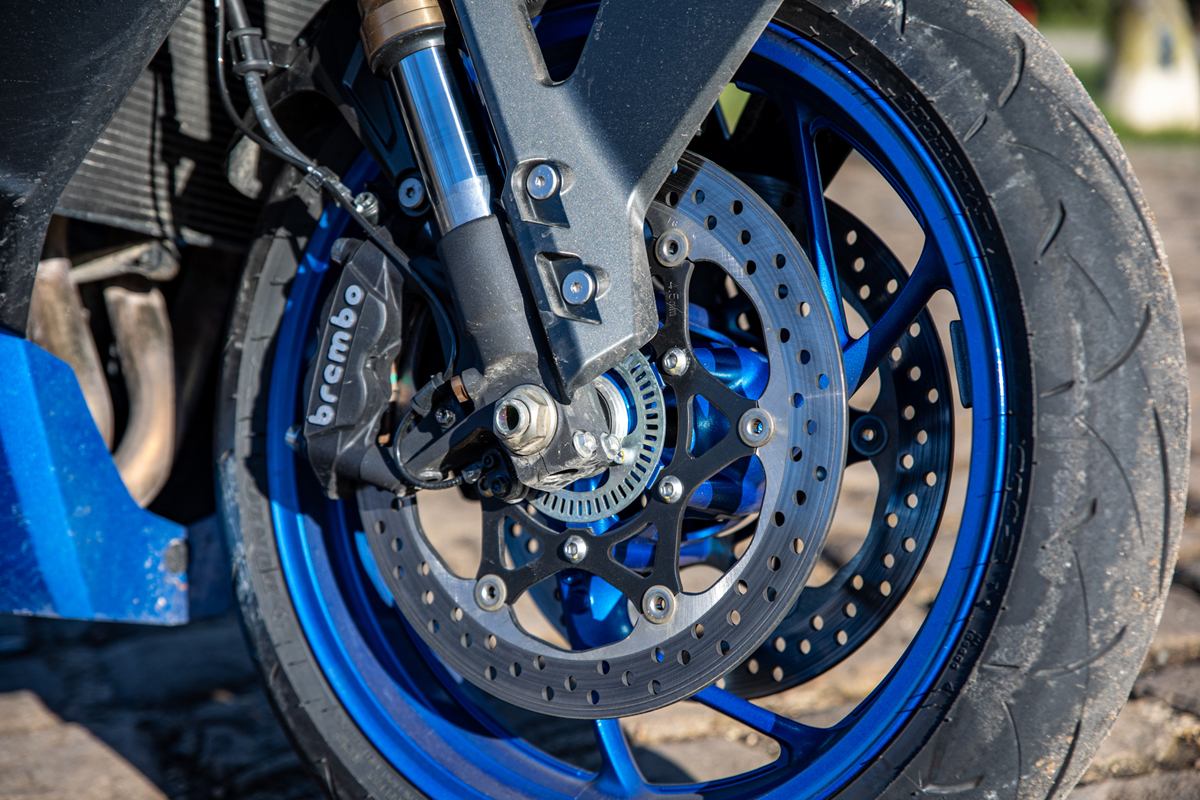
When you start the monster, there’s no doubt about the racing DNA of the machine. The exhaust note is deep and growling, and the engine revs up smoothly.
Long is the road
Our test unit was fitted with a touring screen, 70 mm higher than the standard one, as well as a pair of side panniers, with a (verified) waterproof capacity of 36 litres. And yes: they can handle a full-face helmet, and they’re easy to open, easy to handle, and easy to get on and off the bike. Great stuff.
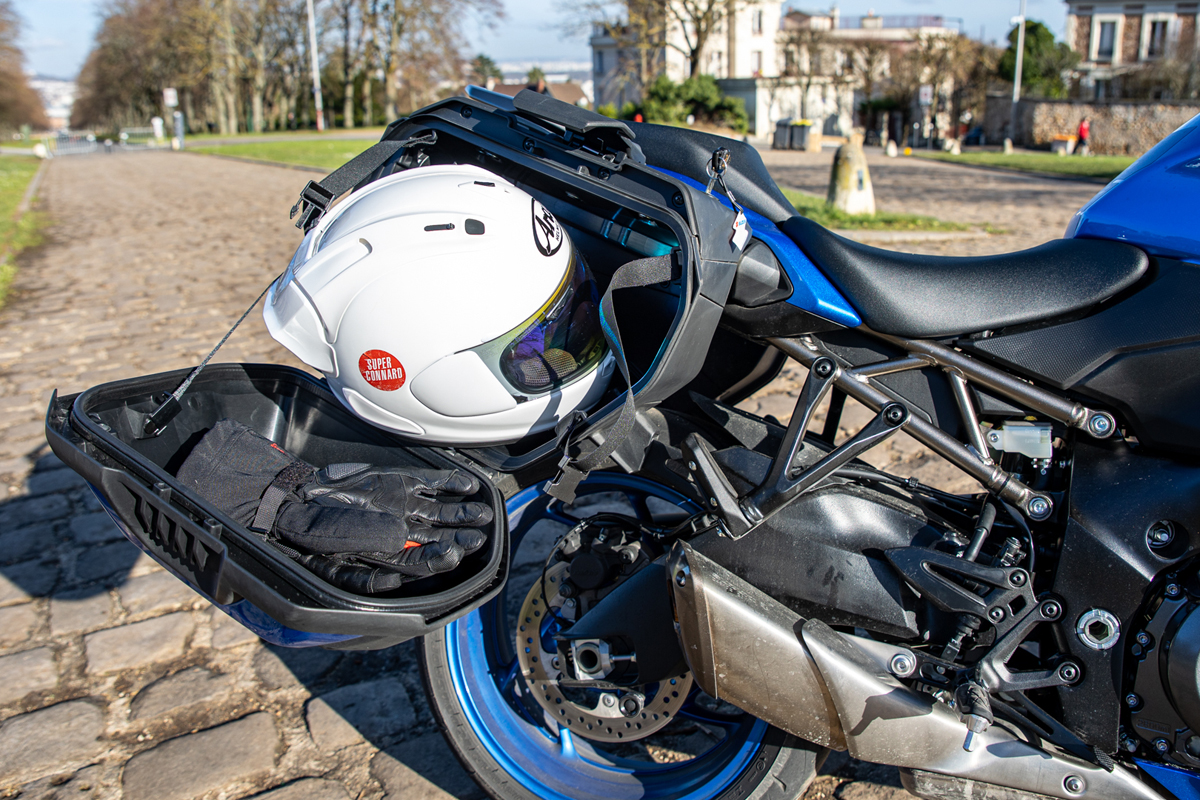
Japanese in-line four cylinders are known to be easy to deal with, and the GSX-S1000GT is no exception. Commuting and sleeking into traffic at 40 km/h in 6th gear is no issue.
But the GSX-S1000GT is here to tackle long-distance, high-speed trips—and it does it very well. The optional touring screen was perfect for some of our shorter test riders, but if you’re taller than 1.8 m you can expect some wind on your chest and helmet. The riding position is very comfortable, even for hundreds and hundreds of kilometres. During our 600 km test, we scored a 6 l/100 km fuel consumption, with a few moments of freedom from the official speed limits.
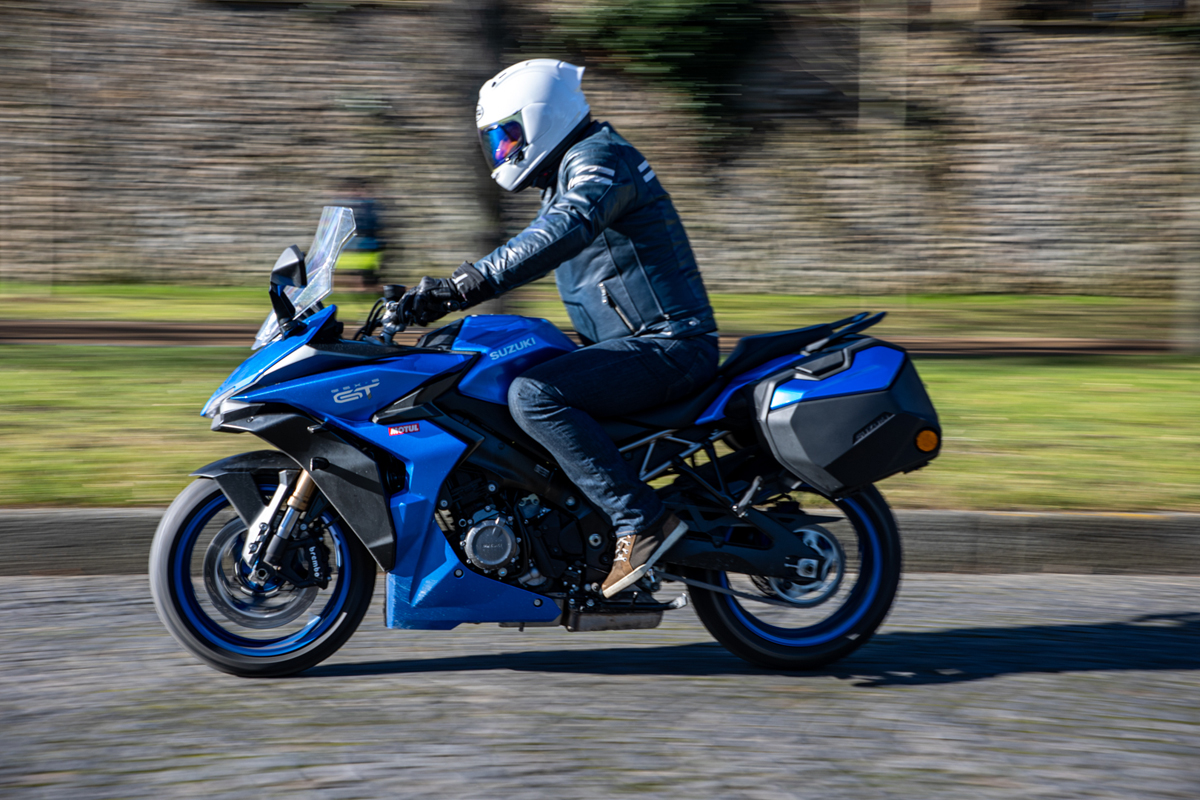
The blue machine is a proper highway-eater. At 120 km/h on the clock (around 5,700 rpm), you can set the cruise control and adjust it in 1 km/h increments. (It works from 30 km/h in 2nd gear.) We found a special Autobahn-type road to open it up on, and at 250 km/h on the speedo, the bike is perfectly stable, even with the side panniers.
Smooth, stable, fast and efficient—that’s the new GSX-S1000GT. And on top of being a proper touring bike, it’s a proper superbike too, as soon as you get beyond 6,000 rpm. It’s Dr Jekyll and Mr Hyde—both fast and comfortable, yet not perfect nor that modern. But if you like those good old four-cylinder sensations, the GSX-S1000GT is for you, and it’s fairly agile for its 226 kg weight.
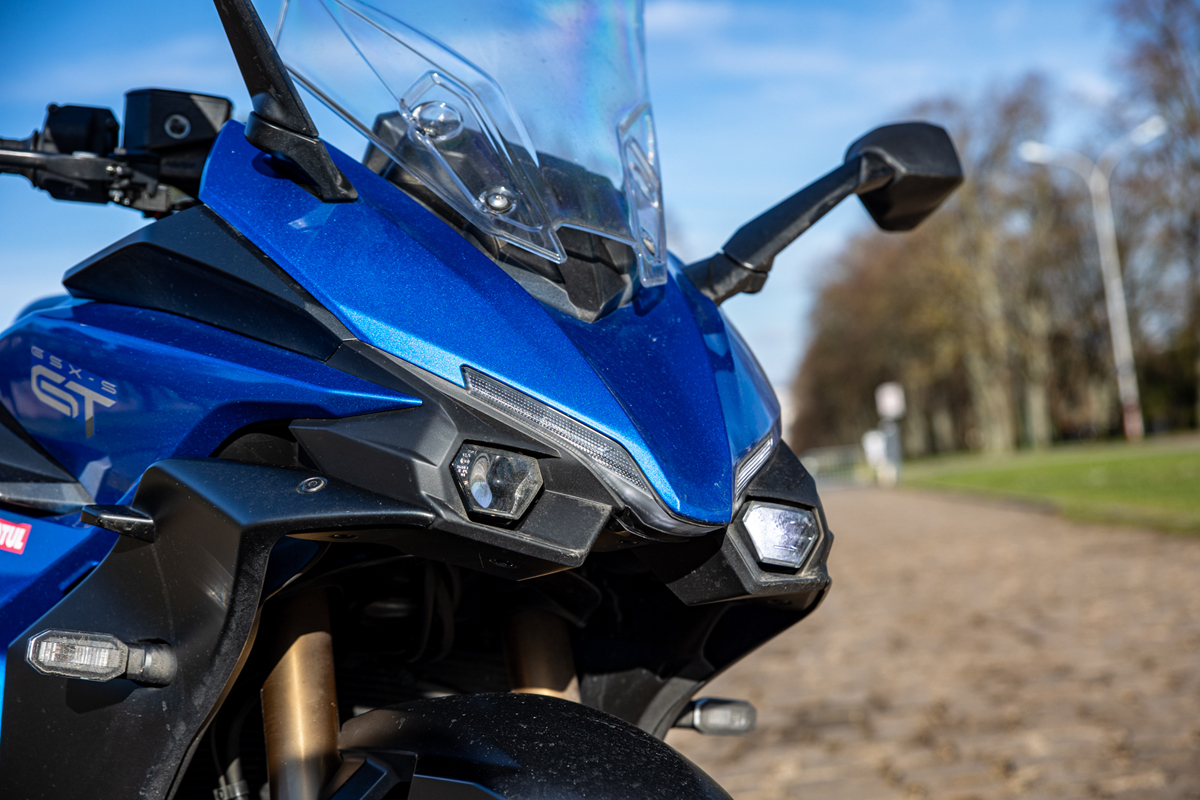
During this test, I also had the chance to ride along with the Kawasaki Ninja 1000SX (and the Honda NT1100, which isn’t available in South Africa at the moment). The Kawasaki is certainly the most direct competitor to the Suzuki.
The blue bike has two advantages over the green one: the engine sounds much better, and its Dunlop tyres perform better than the Bridgestone fitted on the green machine. But there is some serious competition here, as the Kawasaki has better suspension, better brakes and better handling than the Suzuki—even if, at the end of the day, the level of overall performance is very close.
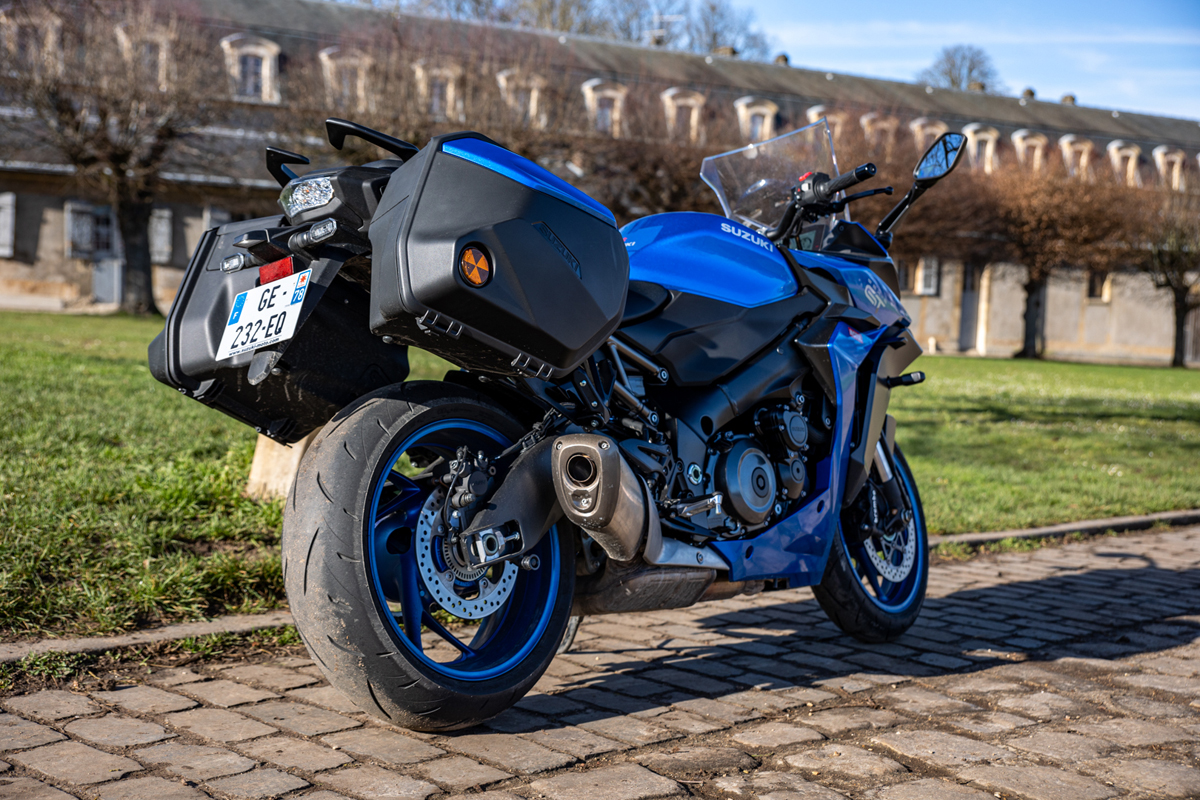
Suzuki GSX-S1000GT
For more information on the bike that we tested in this article, click on the link below…




